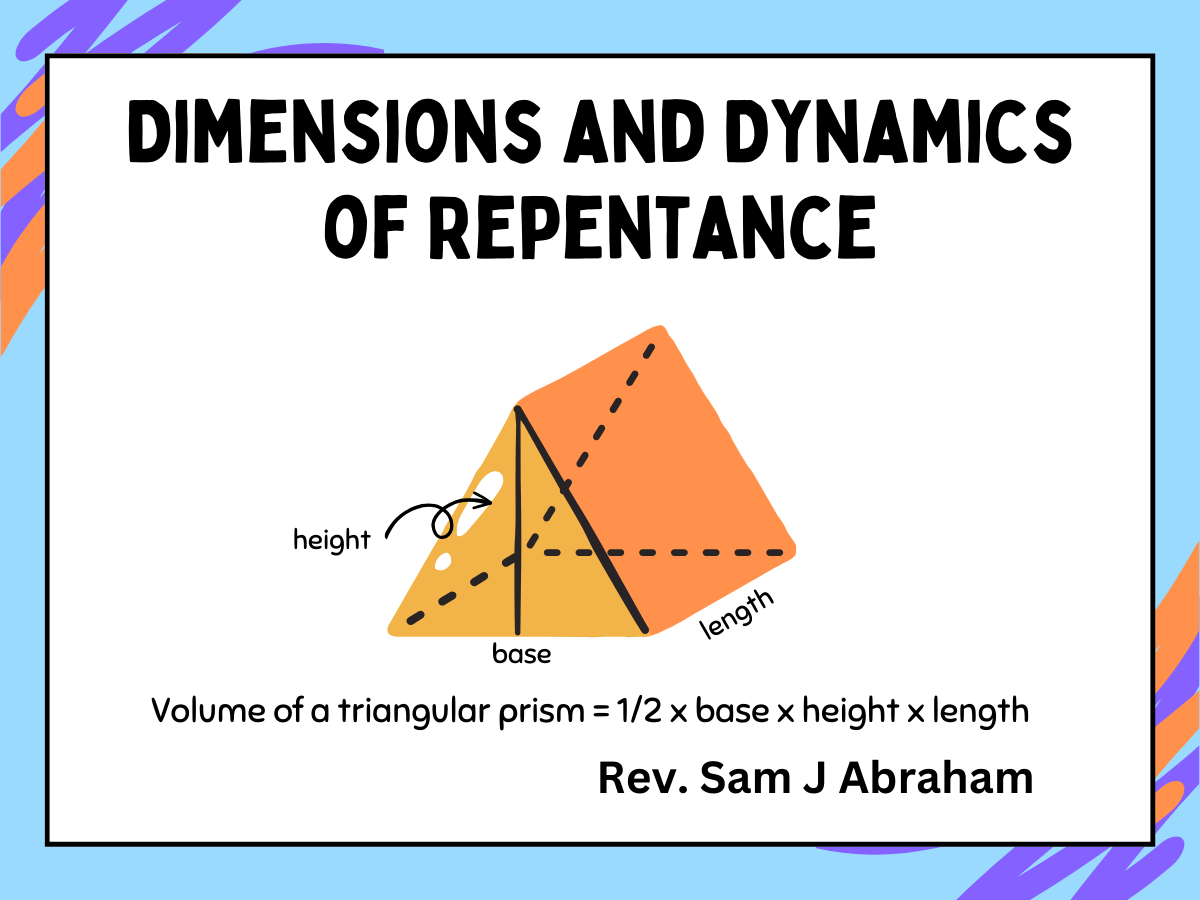
‘Jesus went into Galilee, proclaiming the good news of God. “The time has come,” he said. “The kingdom of God is near. Repent and believe the good news!”’ (Mk.1:14-15). The word repentance means to ‘turn around’. In the Old Testament the Hebrew term ‘shub’ is translated as ‘repent’. In the New Testament the Greek term ‘metanoia’ literally means ‘change of mind’. In the Biblical context, repentance has three dimensions.
Personal Dimension: Repentance is turning to God with the whole being. Physical, psychic, intellectual, moral and spiritual faculties are to be totally involved in that process. One has to turn to God in his or her socio-economic, cultural and geographical milieu. Thus, human beings have to turn to God in the totality of their being. Communitarian Dimension: Nobody can turn to God alone.
Human person is a social being. He or she forms part of a community. Hence the repentance dynamics necessarily involves others. First of all one has to turn to God himself/herself, then with his/her family, the neighborhood and eventually the whole humanity. Cosmic Dimension: Humans’ call to turn around is not limited to the man-woman world. It embraces the whole cosmos.
It extends to animal, vegetative, mineral and heavenly kingdoms. The whole creation is destined by God to form a cosmic family. The entire cosmos finds its redemption when humans stand before God to plead for their cause. Repentance calls for a radical, total and personal turning to God. Now let us look at the dynamics of repentance. Invitation to Repent: Mk. 1:15 encapsulate the important message of Jesus.
Whatever He said or did was the articulation and elaboration of this text. Indeed, His person and life style epitomized this central proclamation. According to Mark, these are the first words uttered by Jesus during His public ministry. By the invitation to repent, Jesus meant that humans have to turn back from their evil ways, and turn to God who is incarnated in Him. Demands on the Repented Person. As Mk. 1:15 illustrates, ‘turn around’ is the necessary response to the kingdom of God. Radical and total turning is demanded for entering the kingdom. Jesus uses drastic images to stress it.
Wealth and a turned-to-God-life cannot go together. ‘No one can serve two masters. Either he will hate the one and love the other, or he will be devoted to the one and despise the other. You cannot serve both God and Money’ (Mt.6:24). Anyone who seeks to trust in God has to be ready to reject natural affinities that become an obstacle for total ‘turn around’ to God. The repented person must lose his or her life for the sake of Jesus in order to save it. Commissioning of the Repented Person: The term disciple means above all, learner or pupil.
Here the emphasis is on the arduous task of nurturing into experiential fellowship with Jesus. To be made a disciple means above all to follow after righteousness as articulated in the teachings of the Master. ‘Therefore go and make disciples … teaching them to obey everything I have commanded you’ (Mt.28:19-20). By the command to teach, the apostles are told to do what Jesus himself did during his lifetime. The apostles have to teach the method prescribed by Jesus to ‘turn around’ to the kingdom of God, which has come in His person. Turn around to God demands that we embrace a radical and totally new ideology and lifestyle. Let us go forward firm in our faith, steadfast in our purposes, but sustained by our confidence in the providence of God.
Author: Rev. Sam J Abraham is an ordained minister of the Pentecostal Church at Rajasthan.


